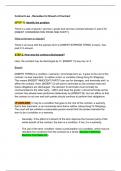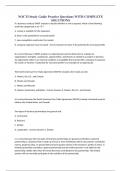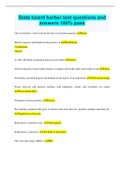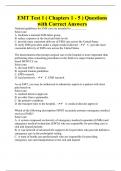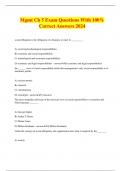Exam (elaborations)
Contract Law - Remedies for Breach of Contract (Exam Plan)
- Module
- Contract Law
- Institution
- University Of Law (ULaw)
NOTE: parts of this exam plan refer to the Contract Formation, Consideration & Variation, and Frustration exam plans. I scored 75% in Contract Law and received a Distinction (74%) overall in the GDL at the University of Law using these notes. These notes are written in the form of step-by-st...
[Show more]
